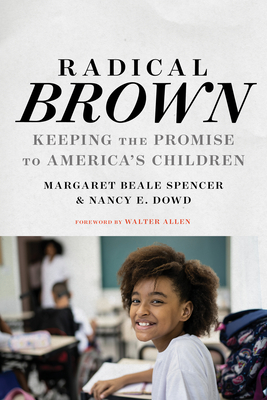
Spencer, Margaret Beale
product information
description
ation informed by a revolutionary re-reading of Brown v. Board of Education, on the 70th anniversary of the ruling. In Radical Brown, renowned developmental scholar Margaret Beale Spencer and critical legal analyst Nancy E. Dowd offer a fresh perspective on the Brown v. Board of Education decision. Noting that decades of flawed implementation have subverted Brown's great promise of educational equality for K-12 public school students, Spencer and Dowd propose a bold framework for a new interpretation of the Supreme Court decision, one that is inclusive, identity affirming, and culturally sensitive. Even as they envision a more equitable future for US students, Spencer and Dowd look critically at the historical context of Brown v. Board of Education, examining the roots of the inequality and segregation the ruling attempted to address, the resistance that the resulting school integration met, and the legacy of attempts to enforce the ruling. They trace the ways in which post-Brown policies have reinforced race privilege for white students and race subordination for Black and marginalized students and show how structural and cultural racism in education have impeded youth development and caused collective identity injury for all. Ultimately, this galvanizing work introduces a way forward that upholds the Brown ruling's intended meaning and mandate. Radical Brown offers suggestions for action, from everyday practice to policy change, to help legislators, school boards, scholars, and educators correct course and enact the decision's true intent--of safeguarding rights based on a common humanity.
member goods
No member items were found under this heading.
Return Policy
All sales are final
Shipping
No special shipping considerations available.
Shipping fees determined at checkout.







